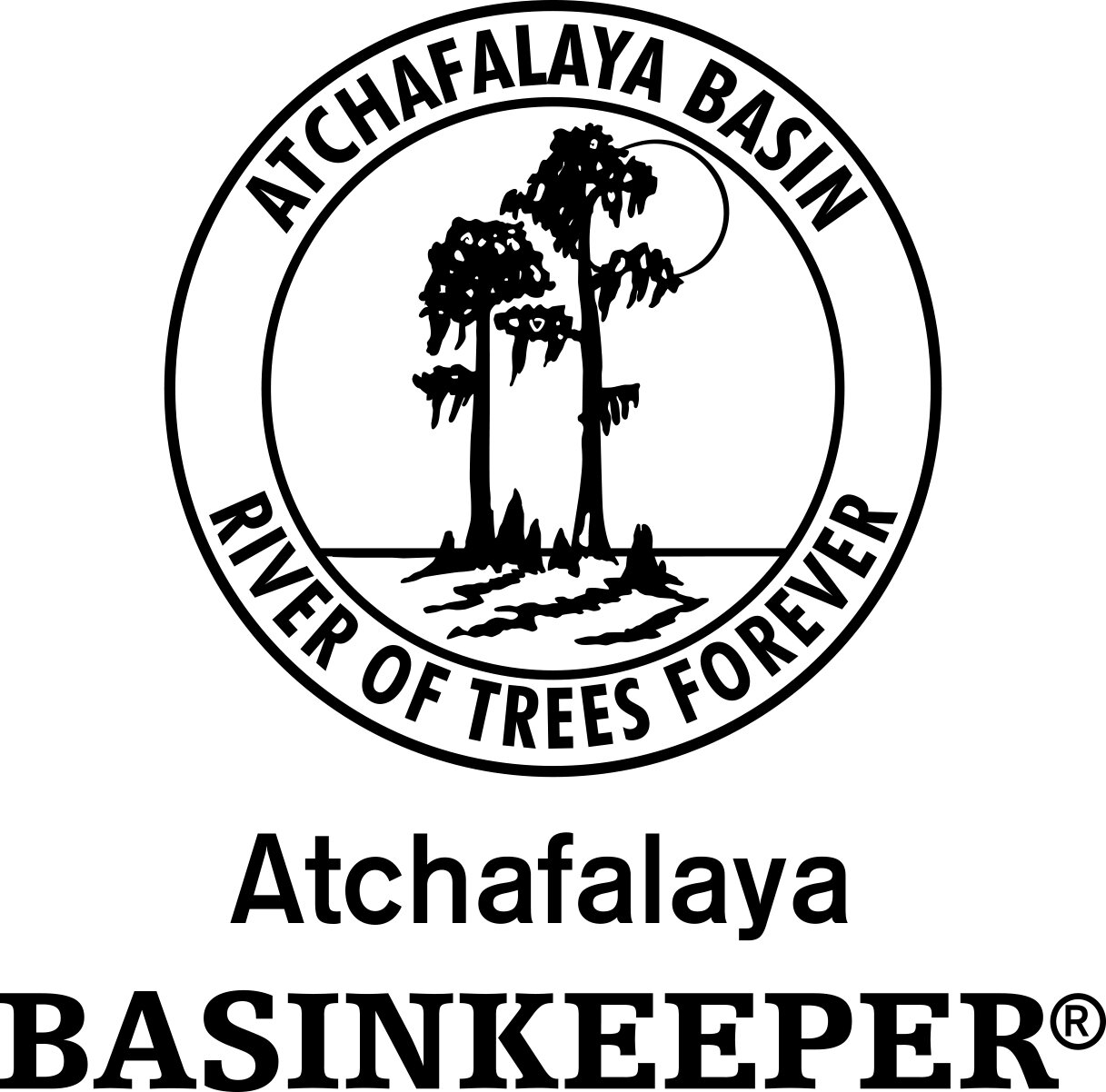Breaking news - Landowner Lawsuit Update!
July 16, 2020
Today, the Third Circuit Court of Appeal for the State of Louisiana ruled that the Bayou Bridge Pipeline Company (BBP) violated due process rights of landowners when it constructed an oil pipeline across their property before acquiring the legal rights to do so. BBP constructed a crude oil pipeline across privately owned land in the ecologically sensitive Atchafalaya Basin. The court awarded each of the property owners $10,000 and legal fees.
“When we first considered taking on BBP, it was conventional wisdom that you couldn’t win against a pipeline company in Louisiana, but we wanted to do what was right regardless,” said landowner Peter Aaslestad. “For others out there thinking they can’t win, I hope this victory shows that they can, and that these companies cannot simply do what they want, run roughshod over people’s rights, and get away with a small fine as the cost of doing business.”
“But for the pipeline monitoring efforts of Atchafalaya Basinkeeper and Healthy Gulf, and Peter Aaslestad’s initial willingness to stick his neck out to protect landowner rights, we may not have made it this far,” said Misha Mitchell, attorney with Atchafalaya Basinkeeper and co-counsel for the landowners who worked with Peter Aaslestad to enjoin unlawful construction on the property prior to the expropriation filing.
A huge thanks to these brave landowners and our partners for helping fight for justice for all Louisiana landowners, and for the protection of all our rights and our environment.
“This is a victory not only for us but for all landowners,” said Theda Larson Wright.
“The rights of landowners are important, so I applaud this ruling,” said landowner Katherine Aaslestad. “But this is also about the abuse of eminent domain by private companies, and we need to keep our attention on that.”
ABK has continually monitored construction of the Bayou Bridge pipeline across the treasured Atchafalaya Basin
(L) Scott GRN (M) Dean ABK (R) Misha ABK
Our work would not be possible without help from our partners, our supporters, our members and our team. Thanks to the Gulf Restoration Network for their ongoing efforts to work with ABK to protect the Basin and Louisiana’s Coast. GRN has been critical in our efforts to monitor ongoing construction of the Bayou Bridge pipeline in and outside of the Basin.
An issue of primary concern for ABK is lack of enforcement of permit conditions and failed compliance with permit conditions. Much of our work centers around these unfortunate yet reoccurring circumstances in the Basin. We work hard to hold not only developers but also regulatory agencies accountable to the letter of the law.
This property in St. Martin Parish was cleared and the pipe laid without the authority from all owners. BBP sued the remaining landowners to acquire the rights to an easement across the property AFTER it had already cleared and constructed on the property.
ABK continues to monitor construction of the Bayou Bridge pipeline across the Atchafalaya Basin. Our staff works hard to document and protect the Basin from lack of compliance with permits.
GRN, ABK, and many other partners and concerned individuals notified the regulators at the outset of this potential pipeline project that the existing right-of-way was riddled with out-of-compliance, existing spoil banks.
David & Goliath
ABK’s attorney Misha facing a giant on the edge of the property.
You may be asking yourself, “why is Atchafalaya Basinkeeper involved in a lawsuit filed against landowners?” It’s a logical question, but here’s why this matters.
In June 2018, during monitoring overflights to track ongoing construction of the Bayou Bridge pipeline across the Atchafalaya Basin, we identified clearing activities on this 38-acre parcel of private property in St. Martin Parish. Unfortunately, some of the owners of this property had not given the company permission to be on their land, let alone to construct or clear trees on the property. In addition to the environmental concerns related to construction in spoil banks, during high water,
In this photo, you can see the existing spoil bank Scott (GRN) and Misha (ABK) are standing on. Also, notice that the pipeline markers have been placed in the existing spoil bank, which disrupts north-south flow of water, impedes navigation, and results in unsustainable deposition of sediment in this area and across the Atchafalaya Basin.
and clearing cypress in the Basin, this issue also presented one of first impression for ABK and perhaps many others – the violation of one’s constitutionally protected right to property. In both the Louisiana and U.S. Constitutions, the right to property is protected as a fundamental right, that can only be infringed upon in certain, delineated circumstances. One of those circumstances involves the use of eminent domain for projects determined to be in the public interest. In the case of a private company, such as Bayou Bridge, the entity bears the burden of proving that the project satisfies a public and necessary purpose and that just compensation is paid to the landowners PRIOR to the
taking. Unfortunately, in this case, Bayou Bridge entered, cleared, and constructed on the property before filing a suit against the landowners to prove it’s entitlement to use the extraordinary power of eminent domain (referred to in Louisiana as “expropriation”), and prior to paying just compensation to the landowners.
A landowner who seeks to ensure that the project is in the public interest, and to require the company to make a showing of a public and necessary purpose for the project, and a determination of just compensation, has to risk being sued, going to court, and potentially losing, which would expose the landowner to possible costs of the case. But again, you may be asking, what does this have to do with the Basinkeeper’s work? ABK believes that the judicial question of whether a project proposed by a private company meets the requirement of fulfilling a public and necessary purpose should consider ALL of the project’s impacts, both beneficial and harmful, economic and ecological. While projects may purport to provide certain economic benefits, we believe that the harms to our state’s economics, restoration efforts, public health and safety, and well-being of our Atchafalaya Basin and Coast should be part of that determination. Atchafalaya Basinkeeper works diligently to promote enforcement and compliance across the Atchafalaya Basin and our Coast. If companies are allowed to continue to disregard permit conditions, expropriation laws, or private rights to property, to the detriment of the Basin and our Coast, we will all suffer. If our regulatory agencies continue to turn a blind eye to noncompliance, we will all suffer. This case represents a clear instance where the company made a business decision to violate the law, and trample over the rights of individuals in its path. ABK believes in the equal application of the law, and the protection of rights revered in U.S. and Louisiana since the inception of our constitutions. ABK has engaged in this effort to protect not only the ecological integrity of the Basin, but also the constitutional rights to property and fair enforcement of the law in Louisiana.
We appreciate all of the support from our members, partners and donors, without which we would be unable to effectively protect the Basin and our Coast for future generations to enjoy.
Appeal Filed
On September 19, 2019 an appeal was filed on behalf of Atchafalaya Basin landowners challenging the Bayou Bridge Pipeline Company’s eminent domain land grab and trespass. The lower court had ruled that BBP trespassed on their land but allowed the company to take the private property.
You can read more about the case and all of the case documents on the case page here.
The landowners had this to say:
“I am still shocked with the judge's decision to allow BBP to get away with trespassing on the land in Bayou Chene and also clear-cutting old-growth Cypress, Sycamore and other valuable trees that are so important to the Atchafalaya Basin. The judge acknowledged that the pipeline company did indeed trespass, but allowed the company to continue the pipeline with only a mere slap on the hand. I've always thought that no one was above the law, but that was not true in this case! I am looking forward to seeing justice prevail in this case and having my confidence in our judicial system restored.”
~Theda Larson-Wright
“In November 2018 a Louisiana State Court ruled that Bayou Bridge trespassed on my property in St. Martin’s Parish, destroying trees and burying a pipeline without my consent or even knowledge. I am outraged that despite the ruling of trespassing, the court sanctioned the taking of my land, striking at the heart of property ownership, and unconstitutionally facilitating the triumph of corporate greed over private property rights. Landowners and citizens need to stand up together against this misuse of eminent domain for private gain by a company with an established record of environmental degradation. As a landowner, I want to preserve the Atchafalaya wetlands and protect it from Bayou Bridge, and I will use this appeal to fight against the perversion of justice last November and the corporate greed that tramples on property owners rights and destroys the tremendous value of the Basin’s ecosystem, including flood and hurricane protection, clean water, and food productions.”
~ Katherine Aaslestad







